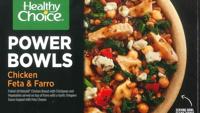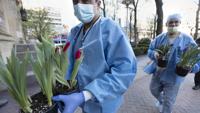Penn State experts: Coronavirus not spread by food

As scientists learn more about the coronavirus, food safety experts at Penn State’s College of Agricultural Sciences are telling residents that there is no evidence the virus can be spread by food or food packaging.
“COVID-19 is a respiratory disease, and coronaviruses generally are transmitted from person to person through respiratory droplets,” said Catherine Cutter, professor of food science and Penn State Extension assistant director for food safety and quality programs.
According to Penn State, studies have shown a low survival rate of the virus on surfaces, which results in a very low risk of spread from packaged food products that are shipped and stored over a period of days or weeks.
Cutter said the major risk of the coronavirus spread in food-related enterprises is connected to people and not products.
Two examples in the past week are from meat-processing facilities in Pennsylvania that suspended operations when several workers became ill, as well as cases where grocery workers have become ill, according to Martin Bucknavage, a senior food safety extension associate in the food science department.
“These developments lead many to ask about the risk this virus poses with the food we buy,” he said. “The answer is, the risk is very minimal.”
Bucknavage said that while coronaviruses have been shown to survive at freezer temperatures, freezer foods are rarely, if ever, handled by workers with bare hands, and modern freezers have defrost cycles that provide a drying or desiccation effect that can be detrimental to the virus.
But he said consumers should still take precautions when handling food, such as washing hands with soap and water before eating. Those who want to take an extra step for safety can also store food items for a day or longer before using or wipe down harder surfaces with a disinfecting wipe.








